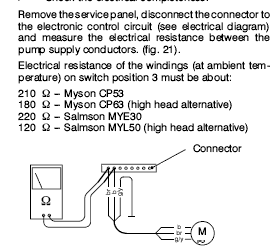Paul Barker said:Sometimes whole house is wired reverese polarity, and if it was a TT earth it would never show up, but a pme earth would carry a hell of a lot of current
Earth and Neutral should be similar dc potential apply meter to phase and to boards earth should be 230v (nominally, which of course is a Euro untruth, look for 240v) neutral to boards earth (tns strapped to armour or tncs attached to neutral emerges from cut out) should be 0 to 5v.
Then the boiler supply alone could be falseley polarised.
Why would a PME carry a hell of a lot of current?
Surely you mean similar AC potential


